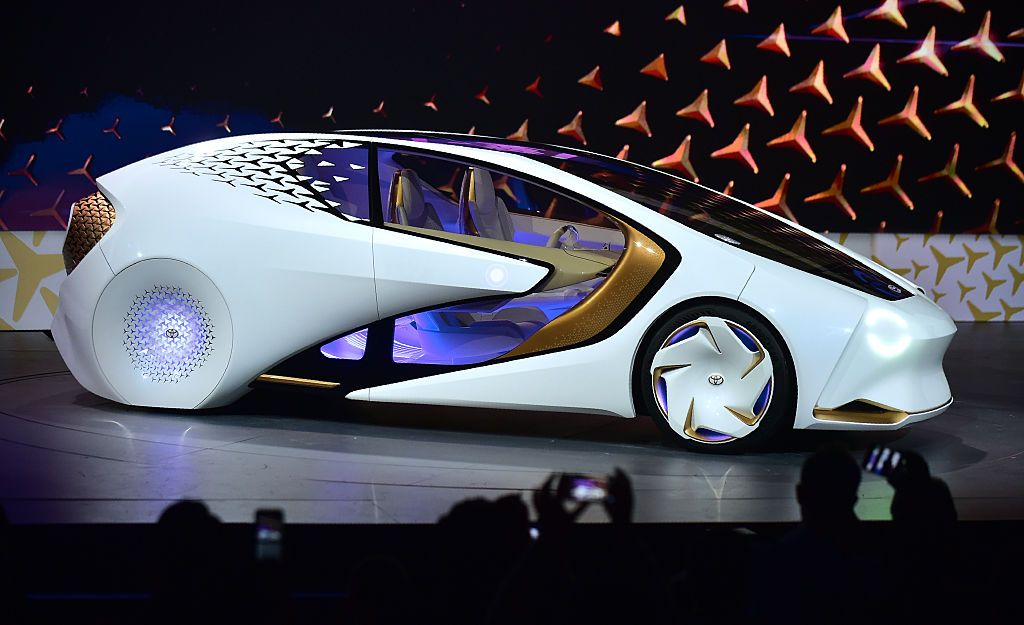There it is, posing by the Seine on the Quai de la Tournelle early on a Paris Sunday morning. It's a 2009 Toyota iQ.
A what?!?
Well, the name strikes me as being utterly unimaginative. That's because it was intended to compete with Daimler-Benz's Smart Fortwo. And the name "Smart" also strikes me as being condescending. That is, you are a half-brain-dead idiot if you fail to discern the wonderfulness of this tiny example of fatal-collision bait. (Yes, I know Smarts were given crash tests, but I'd hate to be in one getting smashed by a camion at 130 kph on an Autoroute.)
Anyway. Given that the Smart brand had been around since 1998, one might think that, ten years later when the iQ was introduced, Toyota marketing management would have come up with a non-aping, more creative model name. As it stands, iQs are no longer on the new car market, production having ended March 2016.
Smarts continue in production, but have never sold well in the United States. Their natural habitat is a large city such as Paris where street parking is hard to find for standard cars, but occasional small spots might be found that would accommodate tiny cars.
This post presents the second Smart version, produced 2007-2014, as compared to the iQ that was produced 2008-2016. Due to their very small size, there was little for stylist to work with when designing them.
Stylists on the Smart Fortwo project included side sculpting and headlight assemblies patterned after what is found on standard cars.
Due to its minimal length, all that décor yields little more that busyness and clutter.
I'm not sure that the rising character line should rise. A horizontal line might make the car seem a bit less stubby.
The Fortwo, as the name implies, seats only the driver and one passenger. But in 2004-2006 Smart also made a Forfour with four doors and, in theory, room for four people. A Renault-based Forfour re-emerged in 2014. Above is a 2004 version.
Now for the iQ. It was designed to accommodate a driver and two or three others -- its small back seat was fit for an adult sitting crosswise or for two small children. In terms of carrying capacity it's between the Smart Fortwo and Forfour, though it was basically competitive with the Fortwo.
Unlike the Smart, iQ's styling is largely decoration-free.
This rear 3/4 view of a black iQ shows the effort put into sculpting instead of visual jazz. Its front end seems awkward, but what we see here is more pleasing.
There it is, posing by the Seine on the Quai de la Tournelle early on a Paris Sunday morning. It's a 2009 Toyota iQ.
A what?!?
Well, the name strikes me as being utterly unimaginative. That's because it was intended to compete with Daimler-Benz's Smart Fortwo. And the name "Smart" also strikes me as being condescending. That is, you are a half-brain-dead idiot if you fail to discern the wonderfulness of this tiny example of fatal-collision bait. (Yes, I know Smarts were given crash tests, but I'd hate to be in one getting smashed by a camion at 130 kph on an Autoroute.)
Anyway. Given that the Smart brand had been around since 1998, one might think that, ten years later when the iQ was introduced, Toyota marketing management would have come up with a non-aping, more creative model name. As it stands, iQs are no longer on the new car market, production having ended March 2016.
Smarts continue in production, but have never sold well in the United States. Their natural habitat is a large city such as Paris where street parking is hard to find for standard cars, but occasional small spots might be found that would accommodate tiny cars.
This post presents the second Smart version, produced 2007-2014, as compared to the iQ that was produced 2008-2016. Due to their very small size, there was little for stylist to work with when designing them.
Stylists on the Smart Fortwo project included side sculpting and headlight assemblies patterned after what is found on standard cars.
Due to its minimal length, all that décor yields little more that busyness and clutter.
I'm not sure that the rising character line should rise. A horizontal line might make the car seem a bit less stubby.
The Fortwo, as the name implies, seats only the driver and one passenger. But in 2004-2006 Smart also made a Forfour with four doors and, in theory, room for four people. A Renault-based Forfour re-emerged in 2014. Above is a 2004 version.
Now for the iQ. It was designed to accommodate a driver and two or three others -- its small back seat was fit for an adult sitting crosswise or for two small children. In terms of carrying capacity it's between the Smart Fortwo and Forfour, though it was basically competitive with the Fortwo.
Unlike the Smart, iQ's styling is largely decoration-free.
This rear 3/4 view of a black iQ shows the effort put into sculpting instead of visual jazz. Its front end seems awkward, but what we see here is more pleasing.




















EmoticonEmoticon